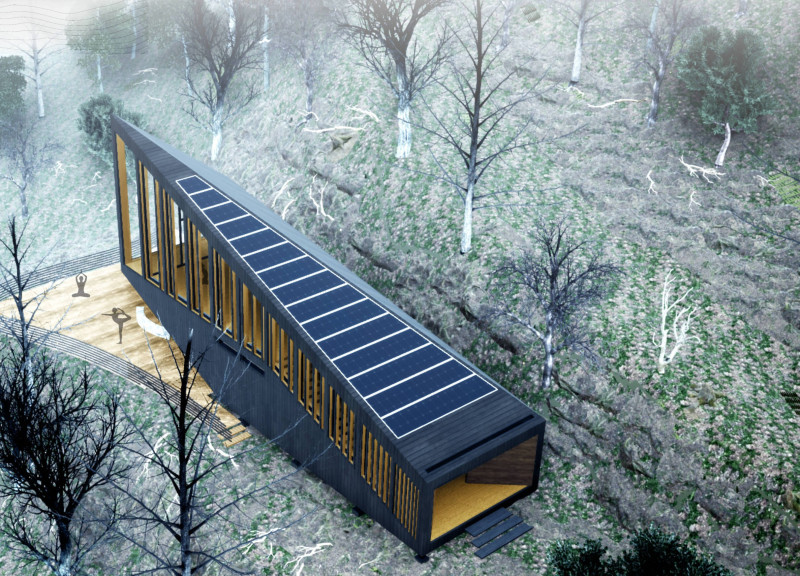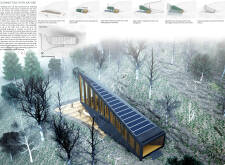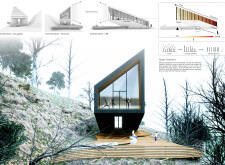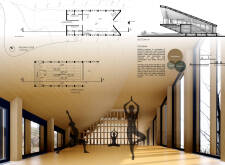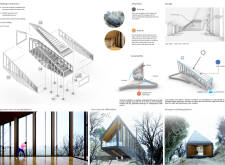5 key facts about this project
The design presents a thoughtful integration within a natural environment. Set on a steep, wooded site, there is a clear emphasis on connecting with the surrounding landscape while maintaining functionality for users. The Yoga House includes important spaces like an entrance, reception, changing rooms, and a yoga studio. These areas are arranged in a sequence that runs parallel to the cliff, making effective use of the site’s narrow dimensions.
Site Response
The form of the building is shaped by the site’s topography and views. The roof follows the slope of the adjacent access road, reinforcing a connection with the terrain. This design approach allows the building to blend with its surroundings, causing minimal disruption to the natural ecology.
Spatial Organization
Inside, individuals transition from the entrance and changing areas to the yoga studio through a staircase that leads to elevated views. This design encourages users to engage with their surroundings progressively, culminating in a wide vista that enhances the overall experience. Elevating the yoga studio also creates shaded space for a garden below, fostering outdoor activities and a connection to nature.
Material Consideration
Material choices are significant in this design. The foundation utilizes concrete to minimize ecological impact. The main structure is made from sustainably sourced timber, reflecting a commitment to responsible design practices. The exterior is clad in darkened treated wood, which is intended to age along with the forest, helping the building harmonize with its natural setting.
Sustainability Features
Natural ventilation is an essential feature of the design. Well-placed openings allow for comfortable airflow, reducing the need for mechanical systems. An underground heat pump offers efficient heating. The roof has been designed to support solar panels, which will help with energy needs, and it allows for the collection of rainwater for toilets and irrigation systems.
The roof of the yoga studio is lifted at its western corner, providing clear views of the landscape. It draws the gaze toward the horizon, enhancing the connection to the site and inviting a sense of peace.


